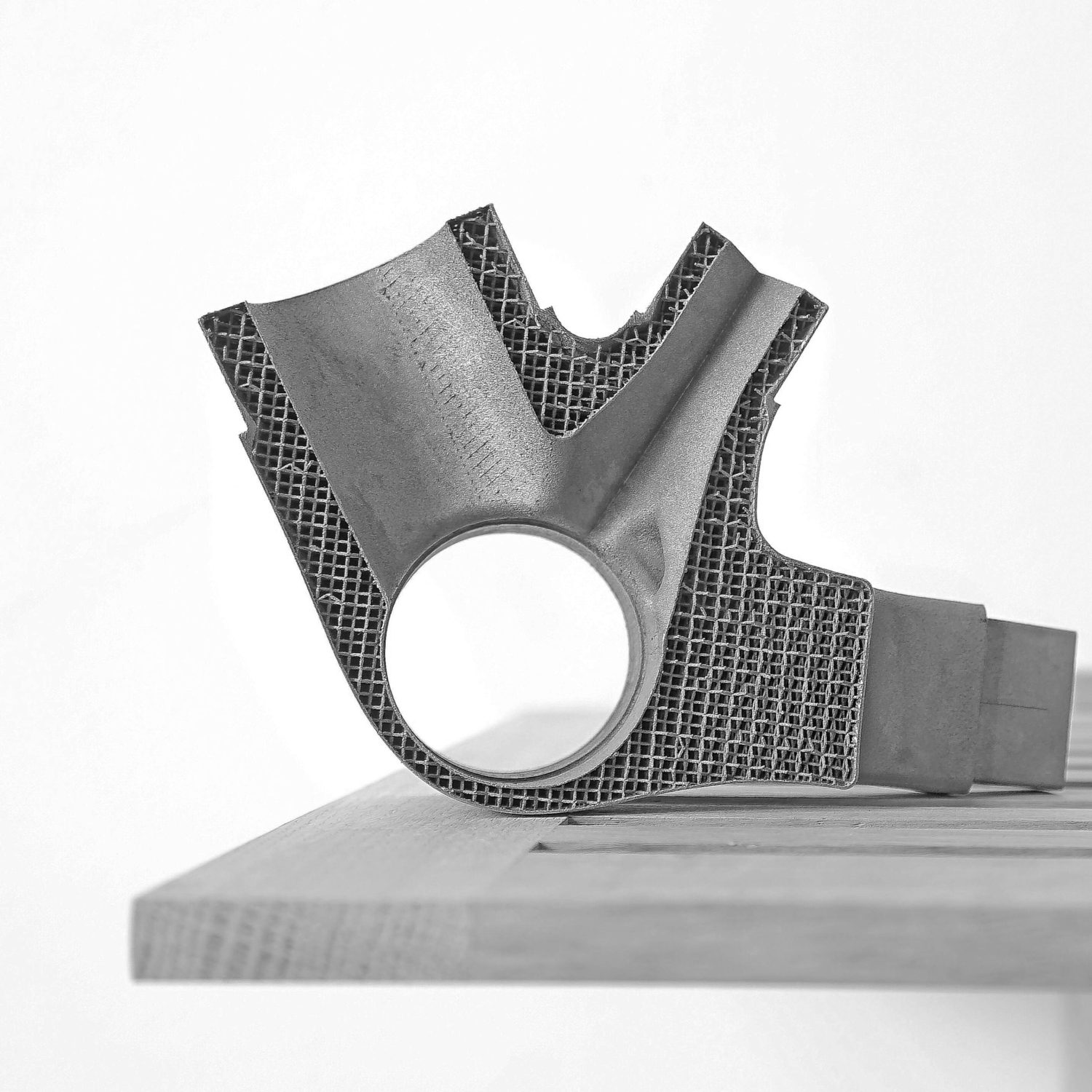Australian custom bike manufacturer Bastion Cycles has purchased an AM250 3D printer from UK-based additive manufacturing specialist Renishaw.
The company previously outsourced metal 3D printing services to develop custom bike parts for its customers, but has now decided to take complete control over its production process by bringing a Renishaw 3D printer in-house. Ben Schultz, Managing Director at Bastion Cycles, is pleased with the support provided after acquiring the system.
“Additive manufacturing is the secret to the customisation and performance of our bikes,” explained Schultz. “We chose Renishaw to supply an AM system because of the support it could provide. Australia has a fairly small AM market and Renishaw is the only company with a local headquarters with dedicated staff that could get an engineer to our site in a few hours.”
“That is a valuable service for a small business like us.”

Customizing bike frames using 3D printing
Founded in 2014, Bastion Cycles designs and trials high-performance road bikes developed using additively manufactured titanium components. The company is based near Melbourne, and was created by Schultz, James Woolcock and Dean McGeary. Their joint vision focused on harnessing the benefits of additive manufacturing to build customizable bike frames, as opposed to CNC machining, which limits flexibility.
Specifically, the bikes utilize a modular design of 3D printed titanium lugs together with carbon fibre tubing. “The idea to use AM in a bike frame was not novel, but being able to make it strong enough, light enough, and aesthetically pleasing enough to sell at a price the market would accept took a lot of work and expertise,” commented Engineering Director, James Woolcock. Using additive manufacturing, the titanium lugs benefit from thin walls and an internal structural lattice, providing a high stiffness-to-weight component.

In the first three years of the company’s operation, it outsourced its metal 3D printing to RAM3D, a local additive manufacturing service bureau. Investing in an additive manufacturing system would have proved too costly for Bastion Cycles at the time. RAM3D also utilized the Renishaw AM250 3D printer to manufacture titanium bike frame components for Basion Cycles.
However, at the end of 2018, the company reached a critical volume of bike sales that forced the company to seek an internal solution, leading to the investment in the Renishaw AM250 system. Renishaw was identified due to the level of serviceability and support offered by the company, particularly within Bastion Cycle’s local area. “A service engineer can reach us within only one to two hours. Our machine has been running seven days per week since we installed it, with only one minor issue,” added Woolcock.
Renishaw 3D printing puts pedal to the metal
Renishaw 3D printing has helped a number of bike manufacturers to produce their cycles over the years. In 2013, the company partnered with Empire Cycles to create what was the world’s first 3D printed titanium bike frame.
Renishaw 3D printers have also been used by Robot Bike Co to manufacture customized bike frames. The bikes are constructed using additively manufactured titanium lugs and carbon fibre tubing.
In early 2019, Renishaw collaborated with new mountain bike brand Atherton Bikes to produce additively manufactured titanium lugs, using its RenAM 500Q 3D printer, for the company’s bike frames.
Subscribe to the 3D Printing Industry newsletter for the latest news in additive manufacturing. You can also stay connected by following us on Twitter and liking us on Facebook.
Looking for a career in additive manufacturing? Visit 3D Printing Jobs for a selection of roles in the industry.
Featured image shows Bastion Cycles AM road bike. Photo via Leon Van Bon.


